Idea by
Camila Preve
Reurbanic
http://www.reurbanic.wixsite.com/reurbanic
Call for ideas 2020
Be'er Sova
Be'er Sova
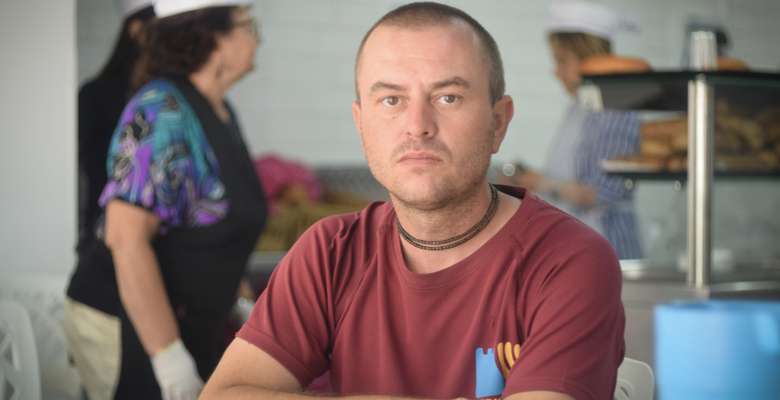
- New alliances
The complexity of cities can only be managed with the plurality of views in the co-creation of a place, a quarter or a situation. Architecture is a sense, a way of thinking and a technique for social urban space changes. Be’er Sheva’s Old Town is being overrun by social segregation. There, the NGO Be’er Sova serves those who can’t afford about 200 meals daily from sponsored goods. Though its social potential, it is a hidden space that needs to claim being an anchor in the quarter’s change, of social presence in horizontal integration process and to become partner of local authorities, social institutions, companies and for the young-creatives who invest their knowledge in the city as a public good.
The architect becomes moderator by connecting different fronts in this tapestry, by making the space a palimpsest that keeps allowing new approaches and by using the design as facilitator. A good project will remain as the good idea so incorporated to its users that dignifies and frees them
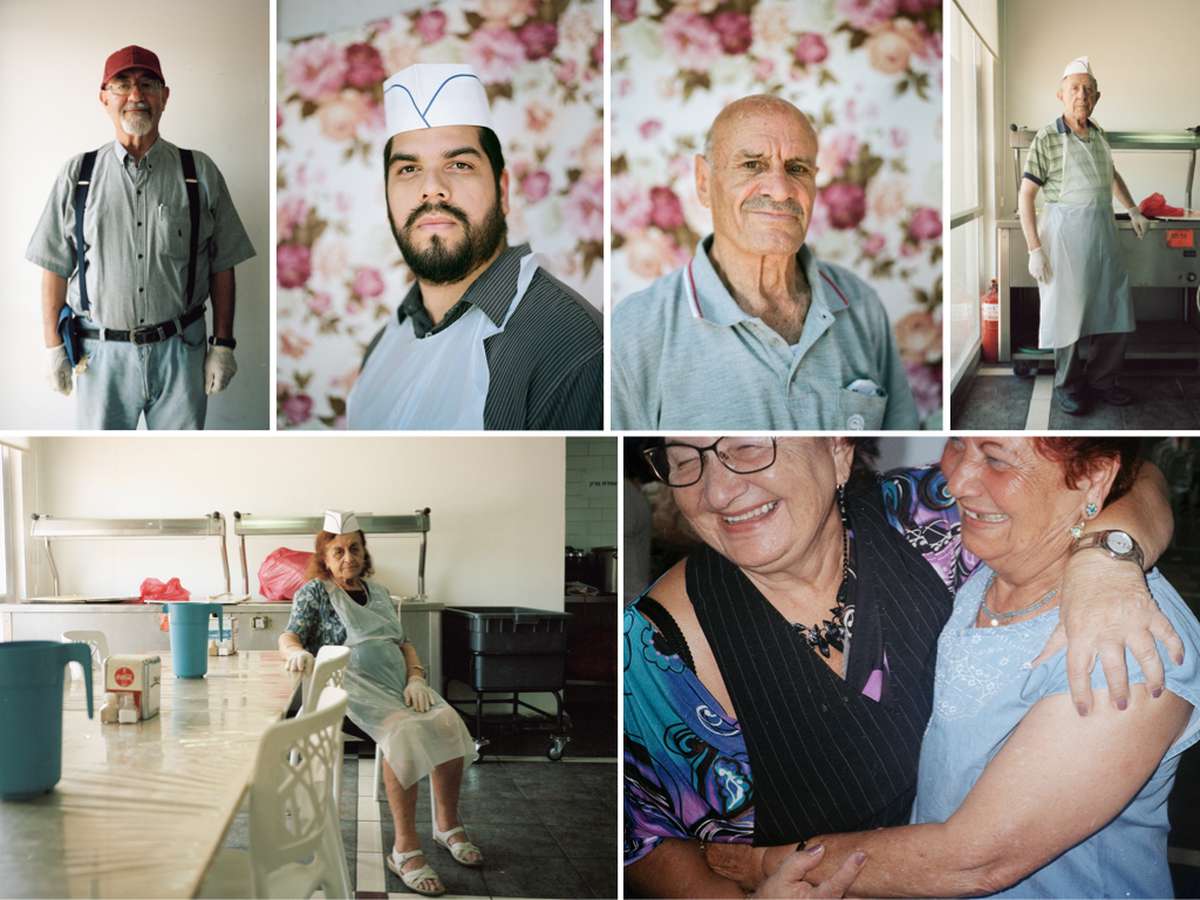
Volunteers from Be'er Sova.
Twisting the question from who owns the city to who makes the city: actors for horizontal integration and creation of social values on encounters. The more complex and unmanageable the situation, the greater must be the fundamental principles of human togetherness: respect, dignity and helpfulness.
Photographs from the Bezalel Art School / Be'er-Sova Joint Collection.
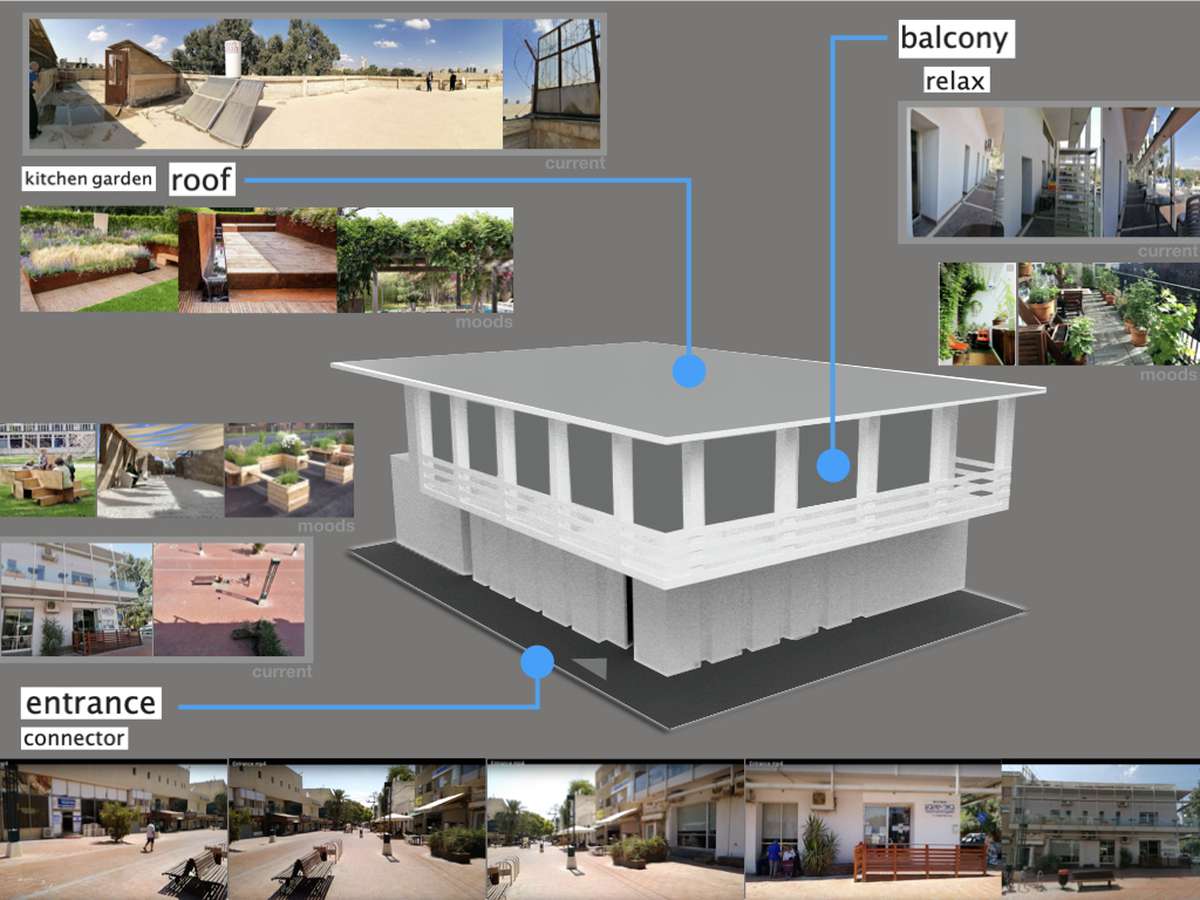
Be'er Sova's customers are used not to be seen, what triggers not only spacial but also social challenges. In order to engage and incite ownership of users and community, the focus is put on creating green spaces for encounters and common activities related to Be'er Sova's nourishing USP and towards a permanent sustainability.
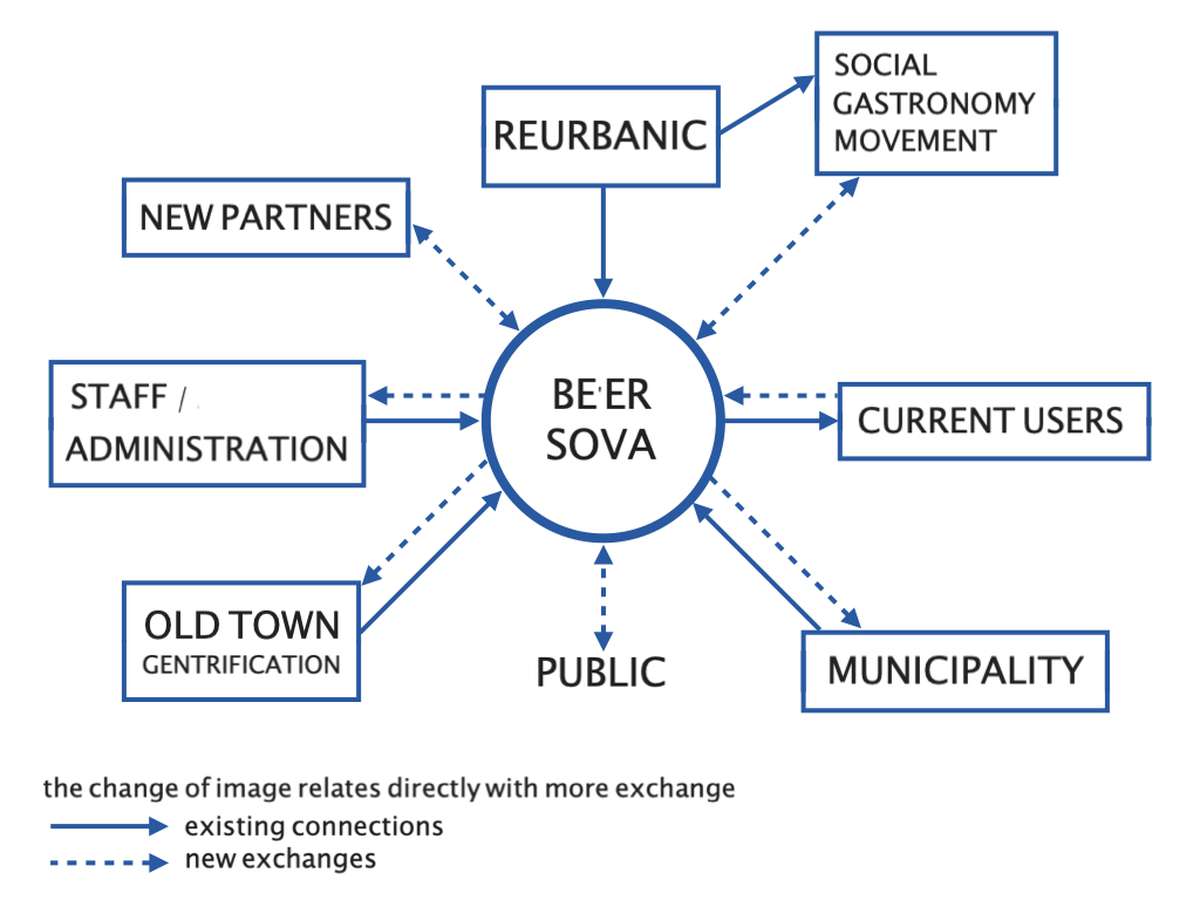
In this complex construct the planning process evolves. The overlap of different personal and professional backgrounds of the stakeholders help the project path to cut off pattern edges and leave it raw. Food as catalyst, finding leaders, create ownership, co-living ethnic groups and flat hierarchy are key points. The link to its neighbourhood and local partners (Negev Museum of Art, Omri Tochterman, Kibbutz Lotan)solidifies them before the municipality, adding for status and financial support.
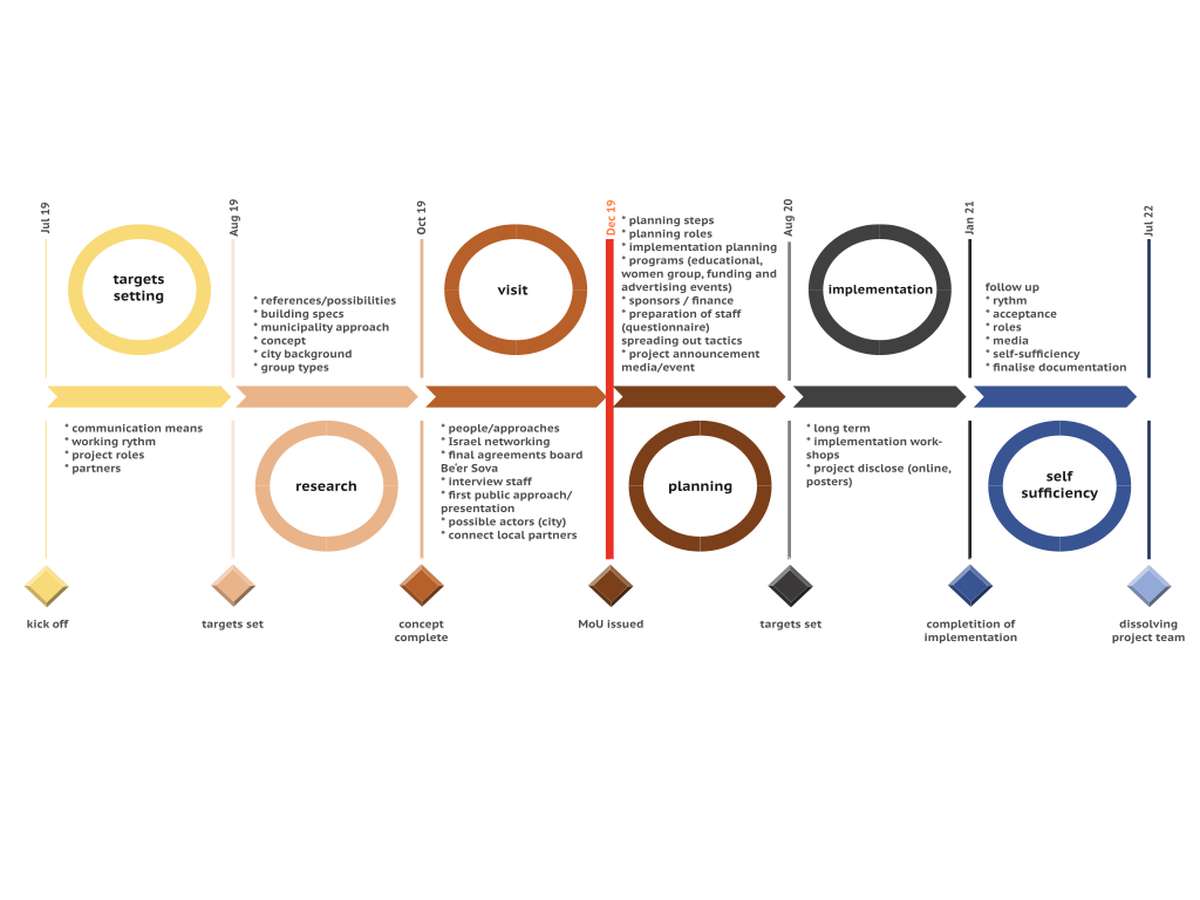
After 6 months of research, local visit, regular meetings with Be'er Sova's board and local partners, and the collaborative formulation of an MoU, the planning steps for the implementation are being prepared.
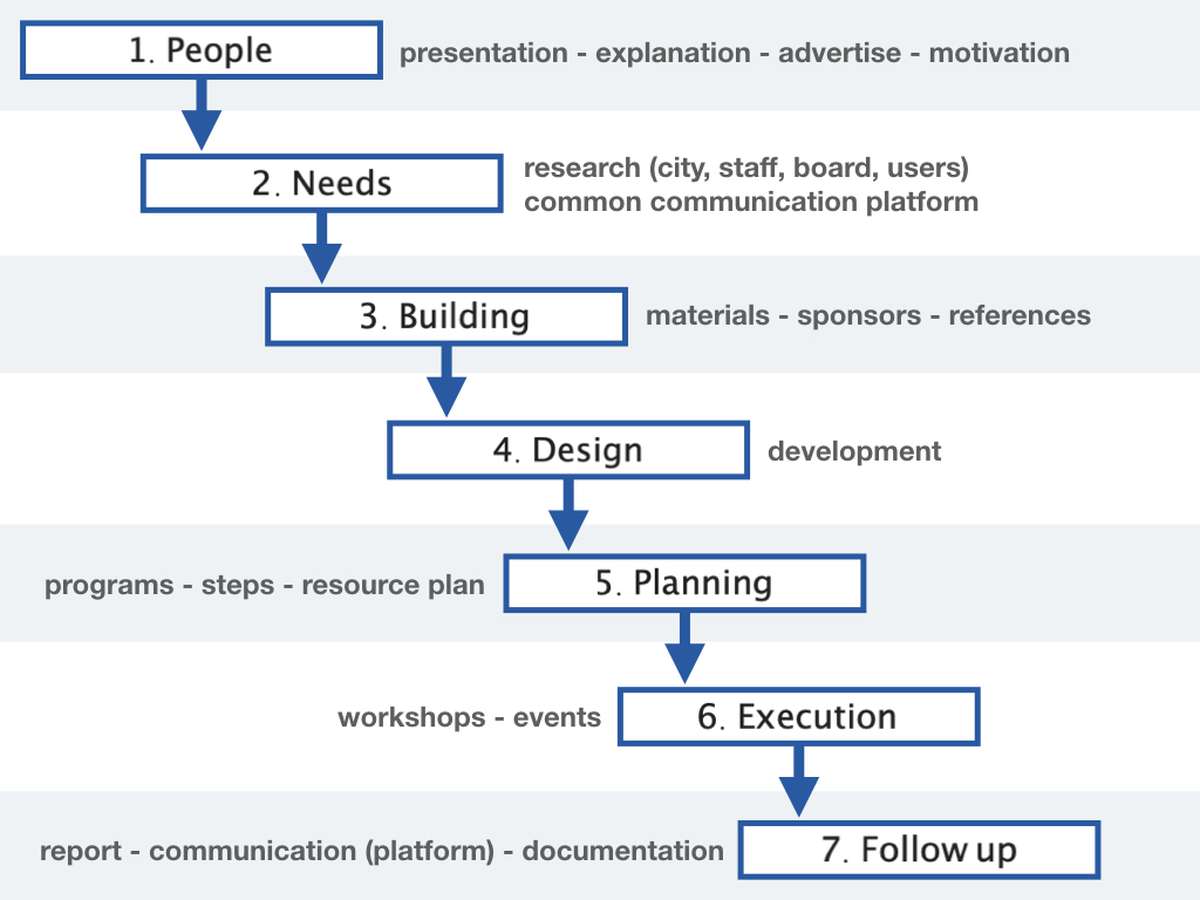
The biggest challenge is the correct approach on users and the motivation of the community. After the recognition of different groups (ethnics, social levels, interests, possible sponsors and collaborators) events, presentations and workshops will follow to assure a common sense (based on social life quality) over the various expectations as well as an ongoing commitment through an open communication platform.
Be'er Sova
Be'er Sova

- New alliances
The complexity of cities can only be managed with the plurality of views in the co-creation of a place, a quarter or a situation. Architecture is a sense, a way of thinking and a technique for social urban space changes. Be’er Sheva’s Old Town is being overrun by social segregation. There, the NGO Be’er Sova serves those who can’t afford about 200 meals daily from sponsored goods. Though its social potential, it is a hidden space that needs to claim being an anchor in the quarter’s change, of social presence in horizontal integration process and to become partner of local authorities, social institutions, companies and for the young-creatives who invest their knowledge in the city as a public good.
The architect becomes moderator by connecting different fronts in this tapestry, by making the space a palimpsest that keeps allowing new approaches and by using the design as facilitator. A good project will remain as the good idea so incorporated to its users that dignifies and frees them
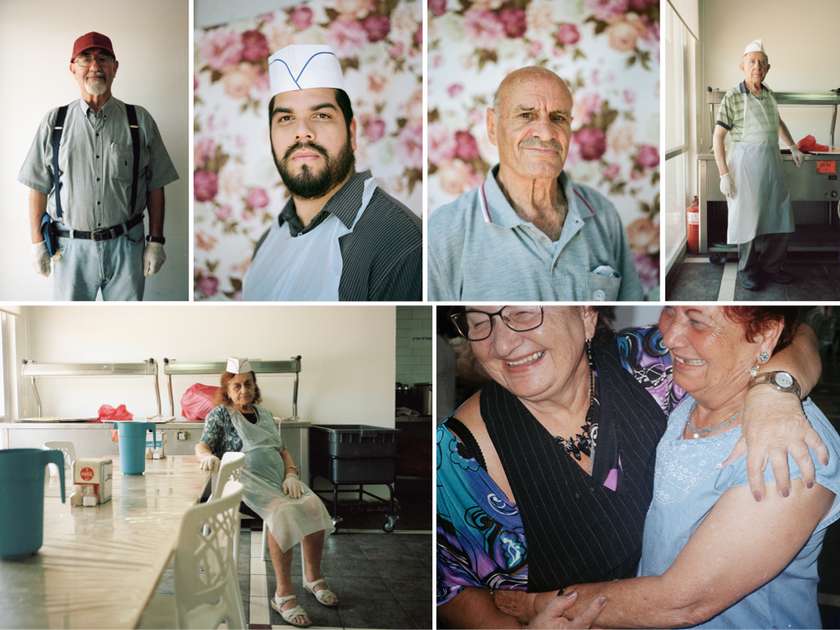
Volunteers from Be'er Sova.
Twisting the question from who owns the city to who makes the city: actors for horizontal integration and creation of social values on encounters. The more complex and unmanageable the situation, the greater must be the fundamental principles of human togetherness: respect, dignity and helpfulness.
Photographs from the Bezalel Art School / Be'er-Sova Joint Collection.
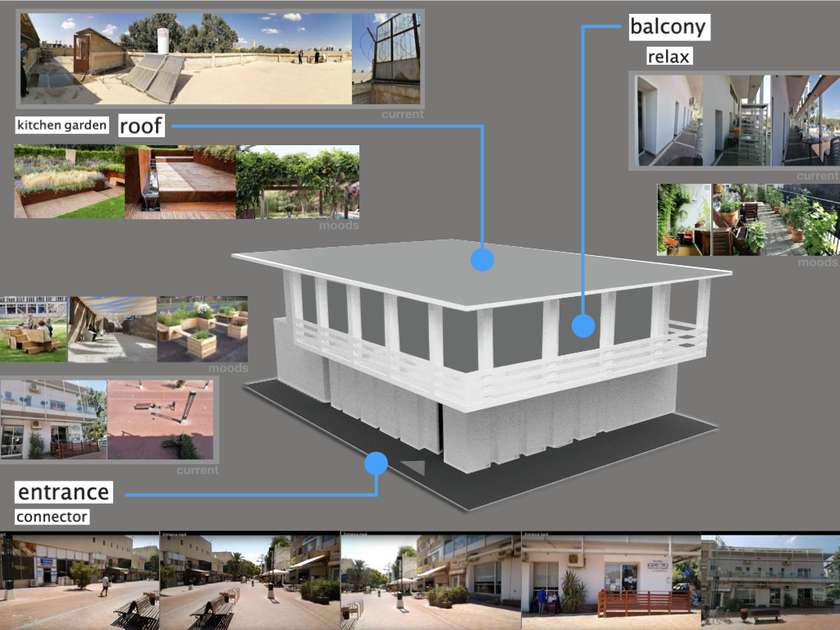
Be'er Sova's customers are used not to be seen, what triggers not only spacial but also social challenges. In order to engage and incite ownership of users and community, the focus is put on creating green spaces for encounters and common activities related to Be'er Sova's nourishing USP and towards a permanent sustainability.
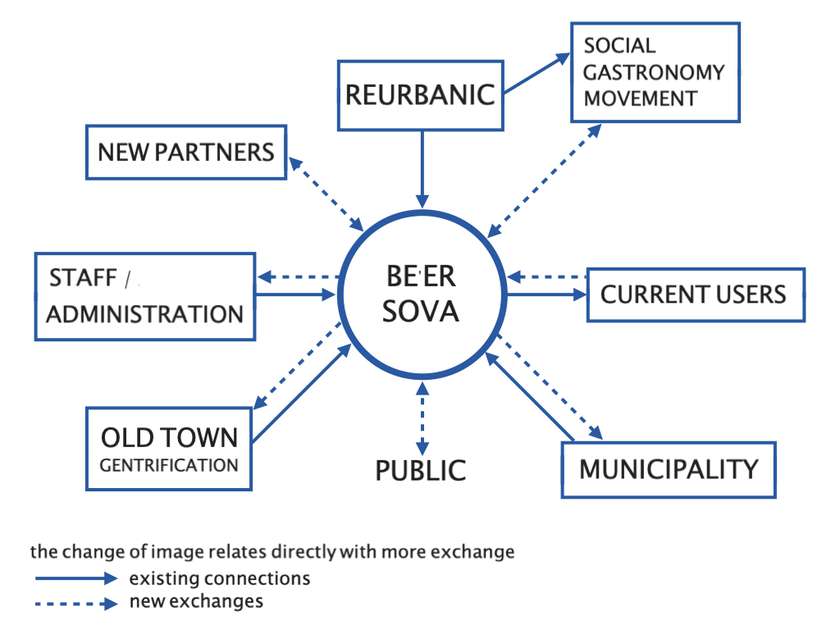
In this complex construct the planning process evolves. The overlap of different personal and professional backgrounds of the stakeholders help the project path to cut off pattern edges and leave it raw. Food as catalyst, finding leaders, create ownership, co-living ethnic groups and flat hierarchy are key points. The link to its neighbourhood and local partners (Negev Museum of Art, Omri Tochterman, Kibbutz Lotan)solidifies them before the municipality, adding for status and financial support.
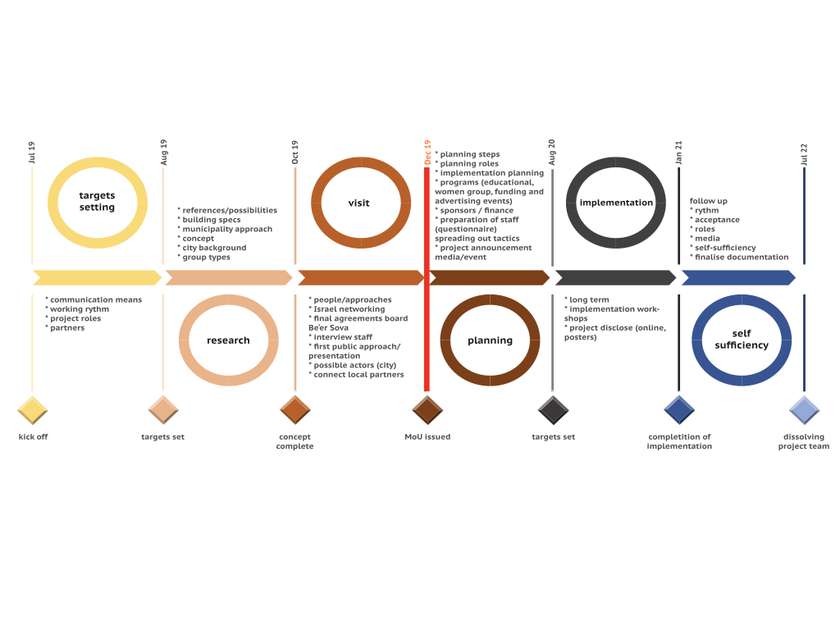
After 6 months of research, local visit, regular meetings with Be'er Sova's board and local partners, and the collaborative formulation of an MoU, the planning steps for the implementation are being prepared.
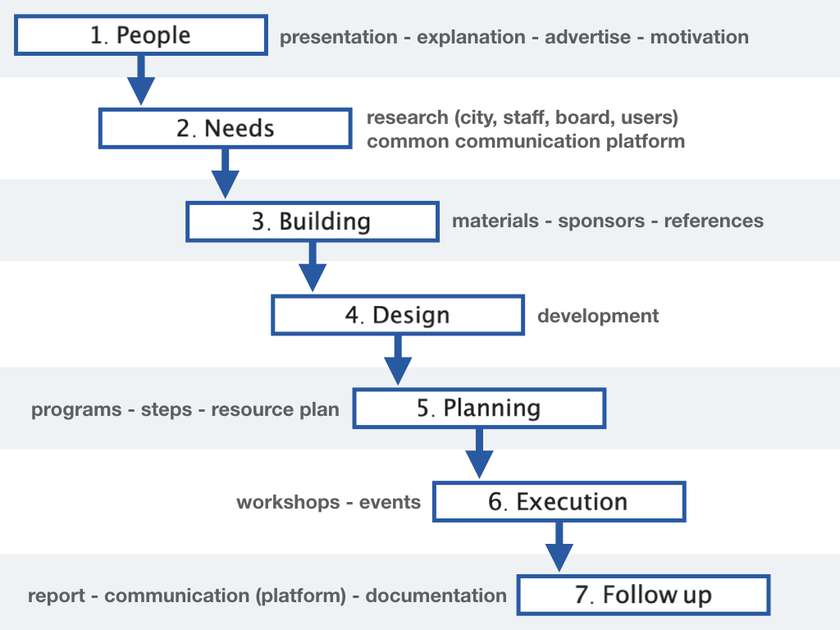
The biggest challenge is the correct approach on users and the motivation of the community. After the recognition of different groups (ethnics, social levels, interests, possible sponsors and collaborators) events, presentations and workshops will follow to assure a common sense (based on social life quality) over the various expectations as well as an ongoing commitment through an open communication platform.